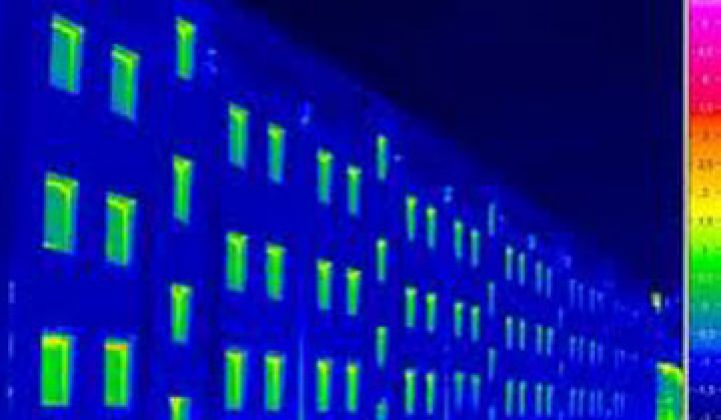Scientific Conservation, the Sigmund Freud of green buildings, raised a second round today to kick off a year the company expects to be a big one.
The Westly Group and Draper Fisher Jurvetson plunked $15.65 million more into the company, bringing the total raised to nearly $25 million. The company has created software that figures out what is wrong with your office building by looking at data from thermostats, air conditioners, carbon monoxide sensors, the building management system and other sources. It then sends out commands to adjust thermostats or replace compressors or other devices on the verge of failure -- the more data, the better. The underlying algorithms exploit neural networks and diagnostic techniques developed in part during the creation of the Space Shuttle. (Kids: that was a reusable spacecraft that came out around the same time as the tabletop version of Donkey Kong.)
While Scientific Conservation will analyze your building's problems, it won't fix them. It won't even actively turn down the lights or HVAC system. It leaves that job to the maintenance staff and building management system. Still, remote, automated analysis can save quite a bit of money. Right now, companies often have to hire consultants to get the same results, and the process can take weeks. CEO Russ McMeekin analogizes his company's software to TurboTax. It might not provide the same exact answer as a professional accountant, but 90 percent of the time, the answer will be nearly the same and the cost spent on third-party help will be a lot less.
Back in November, McMeekin told us Scientific's software had already actively analyzed 15 million square feet of commercial real estate. The goal for 2011, he added, was to colonize 100 million to 150 million square feet. The massive growth spurt springs from two sources. First, the company is racking up deals with large customers like General Electric, Boeing and Neiman Marcus. General Electric alone has 32,000 different facilities. Scientific Conservation may not find its way into all of them, but even a portion would represent a lot of real estate.
Other companies -- EnerNoc, Serious Materials, BuildingIQ, Cimentrics, Redwood Systems, General Telemetry -- make the case that their management services provide automated, continuous responses similar to what Scientific promises. (If we had a live lab, we'd test them all out.) All of these competitors also say that they will provide increasingly automated control over appliances like air conditioners or lights, a function Scientific is punting on for now. All of these systems will ultimately get plugged into demand response networks too, so companies like Constellation, EnerNoc and Comverge can parlay their existing account base to gain market share.
"We are hands-down the largest provider of what you would call persistent or monitoring-based commissioning. We've got 100 massive customers. We've got the California State University System [...]; we've got Boeing," EnerNoc's Gregg Dixon told us last year. Serious, through its acquisition of Valence Energy, claims Santa Clara University as a customer. Hara has landed a contract with the Masdar Foundation to control buildings in Abu Dhabi, but Masdar plans shift continually.
Who will win? It's hard to say. Performance data from the field and word-of-mouth from facilities managers will likely play a huge part in this market.



